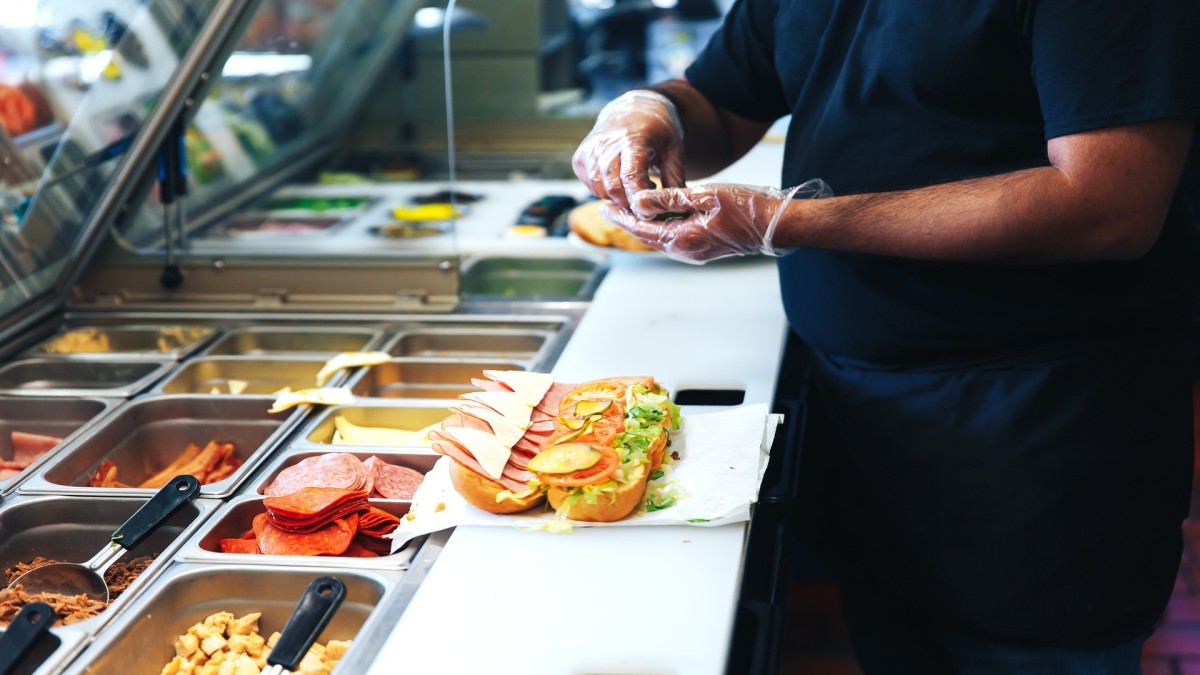It’s common to see restaurants and cozy diners on every corner, and we take these conveniences for granted.
Don’t have time to prepare a nice meal and clean up afterward? It doesn’t matter; there are plenty of dine-out options. And all the choices! Italian, Chinese, Mexican — something to suit every taste.
Unfortunately, when economic challenges strike and we are forced to tighten our wallets, restaurants are not on our minds. And boom! All of a sudden, we find time to prepare our own meals and wash the dishes.
For consumers, it’s a sacrifice, but for restaurant businesses, it’s a gut punch.
Today’s hospitality establishments are struggling with a set of challenges, including rising food and labor costs driven by inflation, fierce competition, and shifts in consumer behavior.
It is completely understandable that consumers are dining out less, since eating at a restaurant became 3.8% more expensive in May 2025 compared to 2024, according to data from the U.S. Department of Agriculture.
Understanding this alarming consumer trend, however, doesn’t mitigate the consequences, which have been devastating for many restaurants and dining chains.
Over the last few years, many have filed for bankruptcy, including Red Lobster, TGI Fridays, Fernando’s Mexican Cuisine, Bertucci’s, and Bar Louie.
Now, another popular fast-casual restaurant chain, Lemonade, is closing all its locations as it makes a huge transition.

Image source: Shutterstock
Southern California chain Lemonade to close all restaurants in major transition
Popular restaurant chain Lemonade closed its last San Francisco Bay Area location as part of a completely new strategy, SFGate first reported.
Lemonade debuted in the Bay Area back in May 2016 with its Metreon restaurant in San Francisco. It quickly expanded, opening locations in the Palo Alto, Walnut Creek, Burlingame, Inner Sunset, and West Portal neighborhoods.
A Lemonade spokesperson confirmed to the outlet that the last location closed last month and that the chain no longer operates any stores in Northern California.
Moreover, it plans to close all its remaining 22 restaurants across the Golden State as it transitions into a ghost kitchen that operates out of its sister restaurant, Mimi’s Cafe.
What are ghost kitchens?
During the Covid pandemic, a myriad of businesses failed. At the same time, the crisis helped inspire some new business ideas and enhanced existing ones. One concept that gained popularity at the time is the ghost kitchen.
Also called virtual, delivery-only, or dark kitchens, they are “essentially restaurants without the dining space,” explains KickFin.
Related: Another popular Italian dining chain filed Chapter 11 bankruptcy
Ghost kitchens prepare, sell, and fulfill online food orders for delivery, often using third-party apps such as Grubhub, Uber Eats, or DoorDash. Sometimes, they have their own delivery operation.
Virtual kitchens don’t have visible storefronts and dining space, suggesting that their business operation expenses are significantly lower than those of classic eat-in restaurants.
Lemonade:“‘We hope to return back soon”
Lemonade didn’t make any official statements on the reasons behind the planned closings and transition to virtual kitchen operations. However, it can probably be assumed that the transformation made more economic sense.
The chain’s representative told the outlet that the transition started on Oct. 1, but couldn’t share a specific date for the closure of other locations.
“We do hope to return back soon,” the representative told SFGATE.
Raising the standard of fast-casual dining
Lemonade is a modern fast-casual restaurant chain founded in Los Angeles back in 2008 by Chef Alan Jackson and Ian Olsen.
The chain’s concept revolved around offering fresh, seasonal, and healthy meals. It was also popular for serving California-inspired comfort dishes, according to Sandiegoville.
Related: Coca-Cola adds new way to drink soda nationwide
Its menu featured various salads, bowls, and sandwiches, all served cafeteria-style.
“Committed to welcoming the varied needs of today’s modern diners, we offer vegetarian, vegan and gluten-free options, as well as a range of distinctive drool-inducing entrees, bowls, sides and desserts,” reads the About Us page on Lemonade’s official website.
Lemonade’s concept is based on raising the standard of fast casual through the offering of healthier alternatives, including protein-based meals and handcrafted lemonades.
Lemonade customers disappointed by closures
In 2022, Mary Meisenzahl, writing for Business Insider, shared her experience dining at Lemonade. “I think it’s poised to take over the U.S.,” she said.
Customers in the neighborhood were disappointed to hear that the last Bay Area store had closed. Comments on Instagram ranged from “Their lemonade was hella good” to “This was such a good place.”
“My corporate lunch time is ruined,” wrote itschochotrain.
Related: McDonald’s revives fan favorite with a shady past
#Fastcasual #restaurant #chain #closes #locations #major #makeover